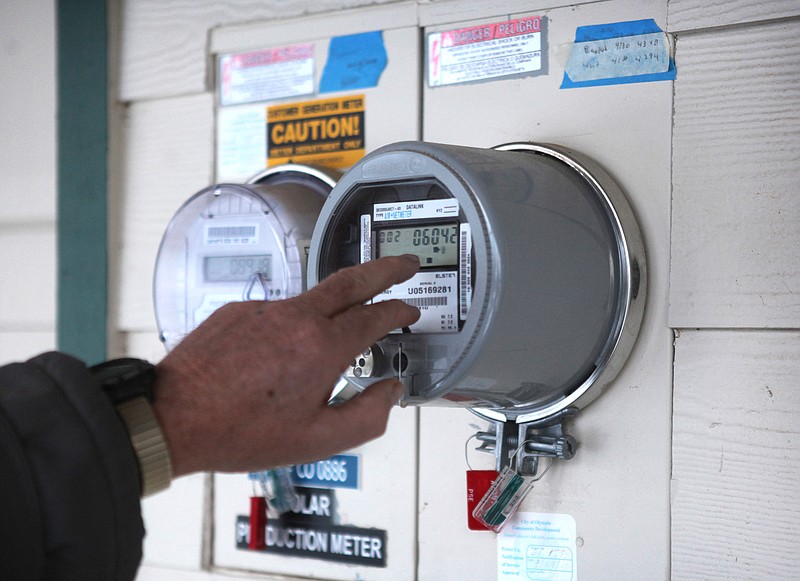Tennessee and Alabama are among the worst states for home energy efficiency, spending only a fraction of the U.S. average on home insulation, heat pumps and other methods of efficient residential heating and cooling, according to a study released Tuesday.
In a new analysis of energy efficiency in the Southeast, the Southern Alliance for Clean Energy found spending on energy savings as a share of electricity bills in Tennessee and Alabama is less than 2% as much as the U.S. average.
The Tennessee Valley Authority, the federal utility that serves Tennessee and Alabama along with portions of five other Southeastern states, once led the nation in early investments in energy efficiency measures a half century ago. But Southern Alliance researchers said TVA now trails all other major utilities in the Southeast in helping its consumers reduce their energy consumption.
"TVA used to be a leader in energy resource planning, but unfortunately, in 2019, TVA essentially eliminated treating energy efficiency as an energy resource and essentially ended all of their incentive programs," Forest Bradley Wright, the energy efficiency director for the alliance, said during a webinar presentation of the organization's fifth annual report on Energy Efficiency in the Southeast.
Stephen Smith, executive director for the Knoxville-based environment group, singled out TVA as the worst major utility in the Southeast in its energy efficiency programs, which Smith said help save consumers money, improve the environment and create well-paying jobs in the local economy.
"TVA is constantly crowing about economic development, but they have a very narrow definition about what economic development is," Smith said during Tuesday's webinar. "We think TVA is not committed to a diverse commitment to all forms of energy and economic development."
But after members of Congress criticized TVA's approach last year and a new TVA board was appointed by President Joe Biden, the federal utility has promised to do more to promote energy efficiency in the future in response to growing overall electricity demand in TVA's seven-state region from the growth in electric vehicles and the region's economy.
At the most recent TVA board meeting in Florence, Alabama, in February, TVA President Jeff Lyash said he wants to encourage TVA customers to find ways to more efficiently use the power they buy and help boost its power management tools during peak demand periods.
"We think there is going to be a new wave of technology with things like advanced energy heat pumps, so we are looking hard at significantly expanding our energy efficiency programs," Lyash said in an interview with the Chattanooga Times Free Press in February. "I have challenged our staff to offset 40% of the load growth that is coming from economic growth and immigration with energy efficiency programs."
TVA was one of the first U.S. utilities to encourage energy efficiency in the 1970s with loans and grants for consumer conservation measures, installation of energy-efficient water heaters and rate discounts for customers using cycle-and-save equipment to limit energy consumption during peak demand periods.
TVA continues to provide free energy audits and advice to help both residential and business customers identify energy-efficient improvements they can take to lower their power use and electric bills. TVA also provides grants for low-income households and schools to make energy upgrades through its Home Uplift program, which has helped more than 600 households in Chattanooga to make energy upgrades that have reduced their power bills by more than 25%.
TVA spokesman Scott Fiedler said Tuesday that the federal utility "is looking at a significant expansion of its energy efficiency programs" in the future to help in low-income areas through its Home Energy Uplift and similar programs. In an emailed statement, Fiedler said TVA is already investing an additional $5 million this year in the Home Uplift program in conjunction with local power companies such as EPB.
"Unlike assistance in paying a power bill each month, Home Uplift focuses on making repairs that enable low-income households to meet their energy needs in the years to come," Fiedler said. "It is not the money you spend, it is the results you achieve, and TVA's energy efficiency programs have achieved some amazing results."
On Tuesday, TVA's efforts were recognized by the U.S. Environmental Protection Agency and the U.S. Department of Energy, which awarded TVA the 2023 Partner of the Year -Energy Efficiency Program Delivery award.
Over the past five years, TVA has invested more than $25 million in Home Uplift and upgraded more than 4,000 homes with no-cost improvements, Fiedler said.
Energy efficiency measures should also be boosted by federal tax credits and incentive programs created by Congress under the Inflation Reduction Act approved last year.
Smith said the federal measure "has really created a once-in-a-lifetime infusion of federal funds in energy efficiency, which really creates a tremendous opportunity for state agencies, local governments and power utilities to all work together to combine and find ways to promote more energy efficiency."
Contact Dave Flessner at dflessner@timesfreepress.com or 423-757-6340.


